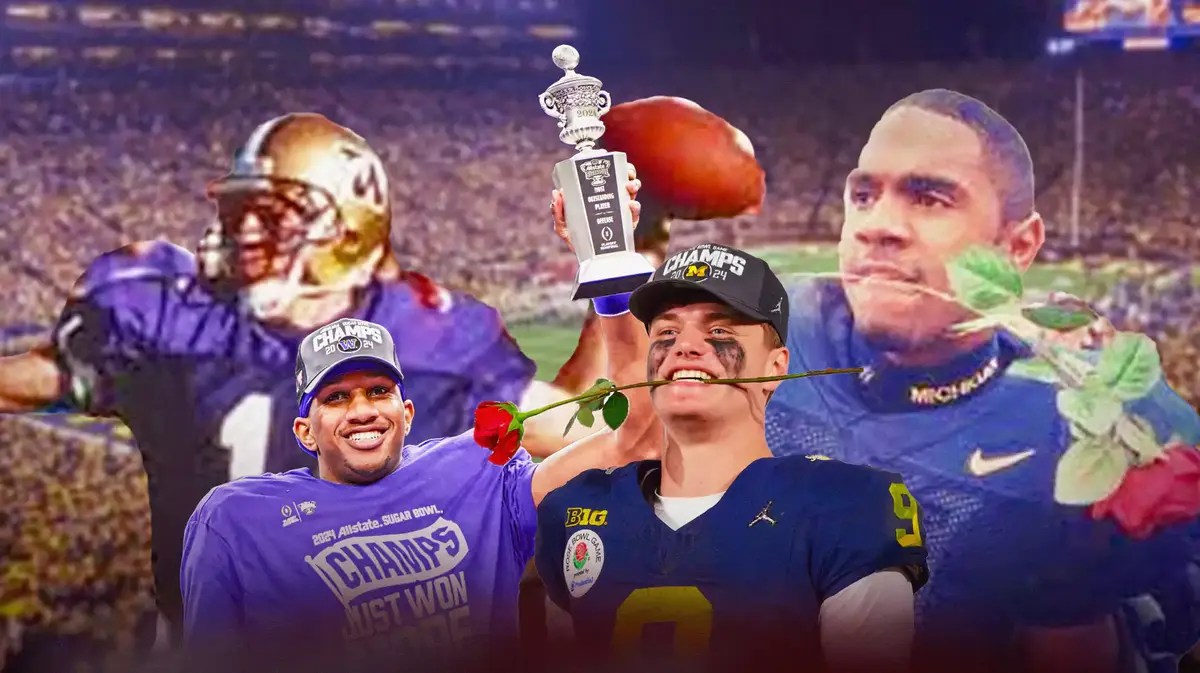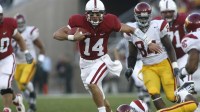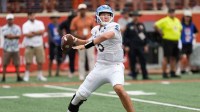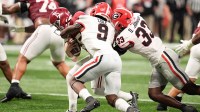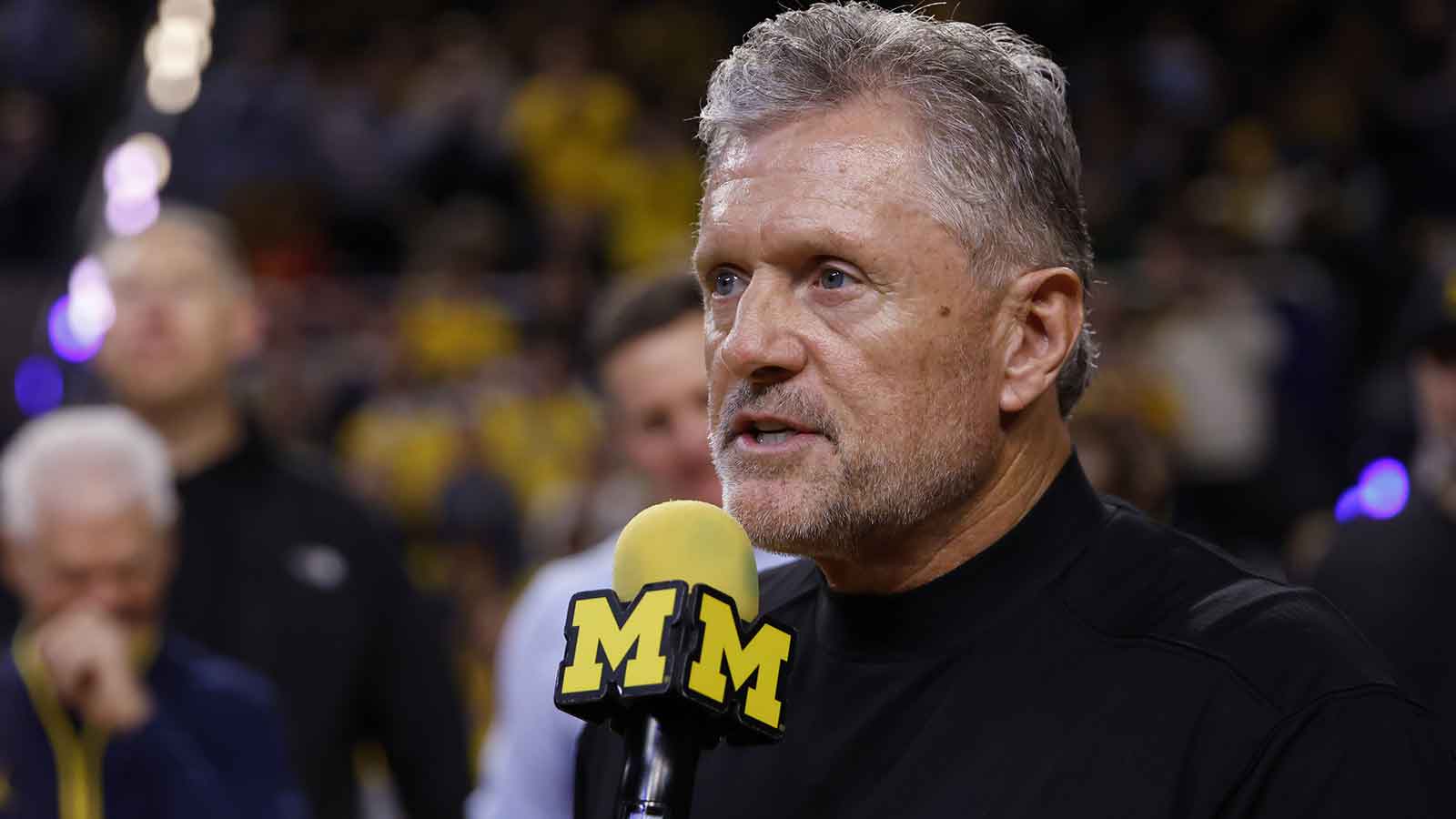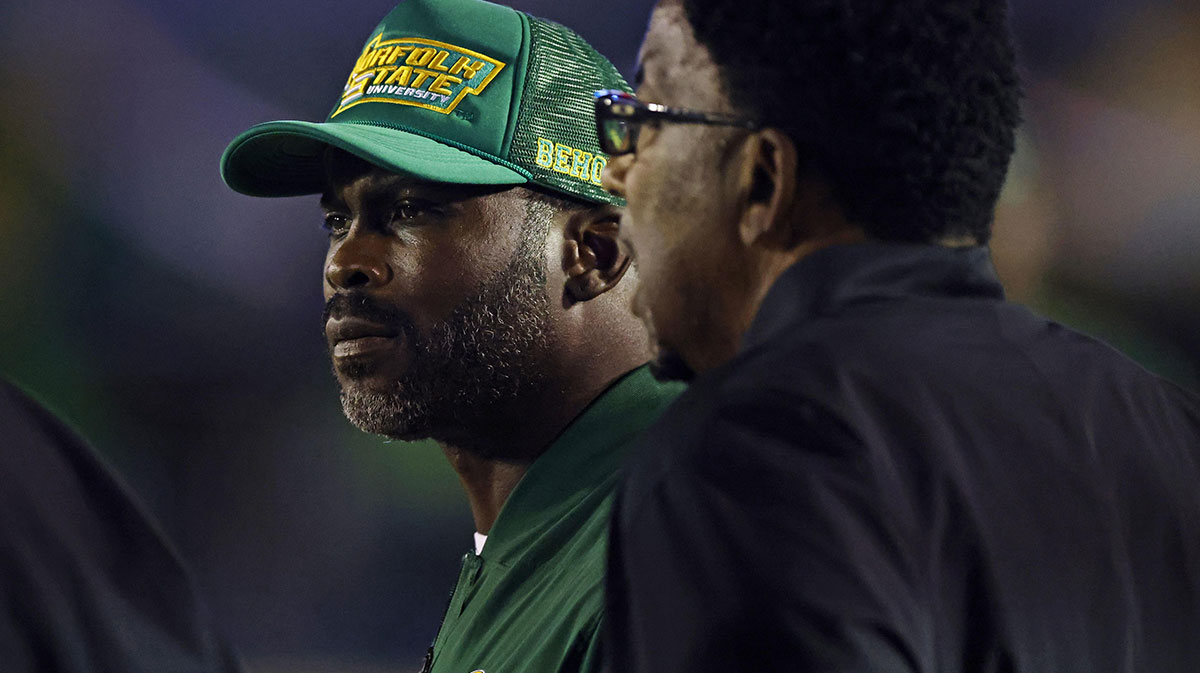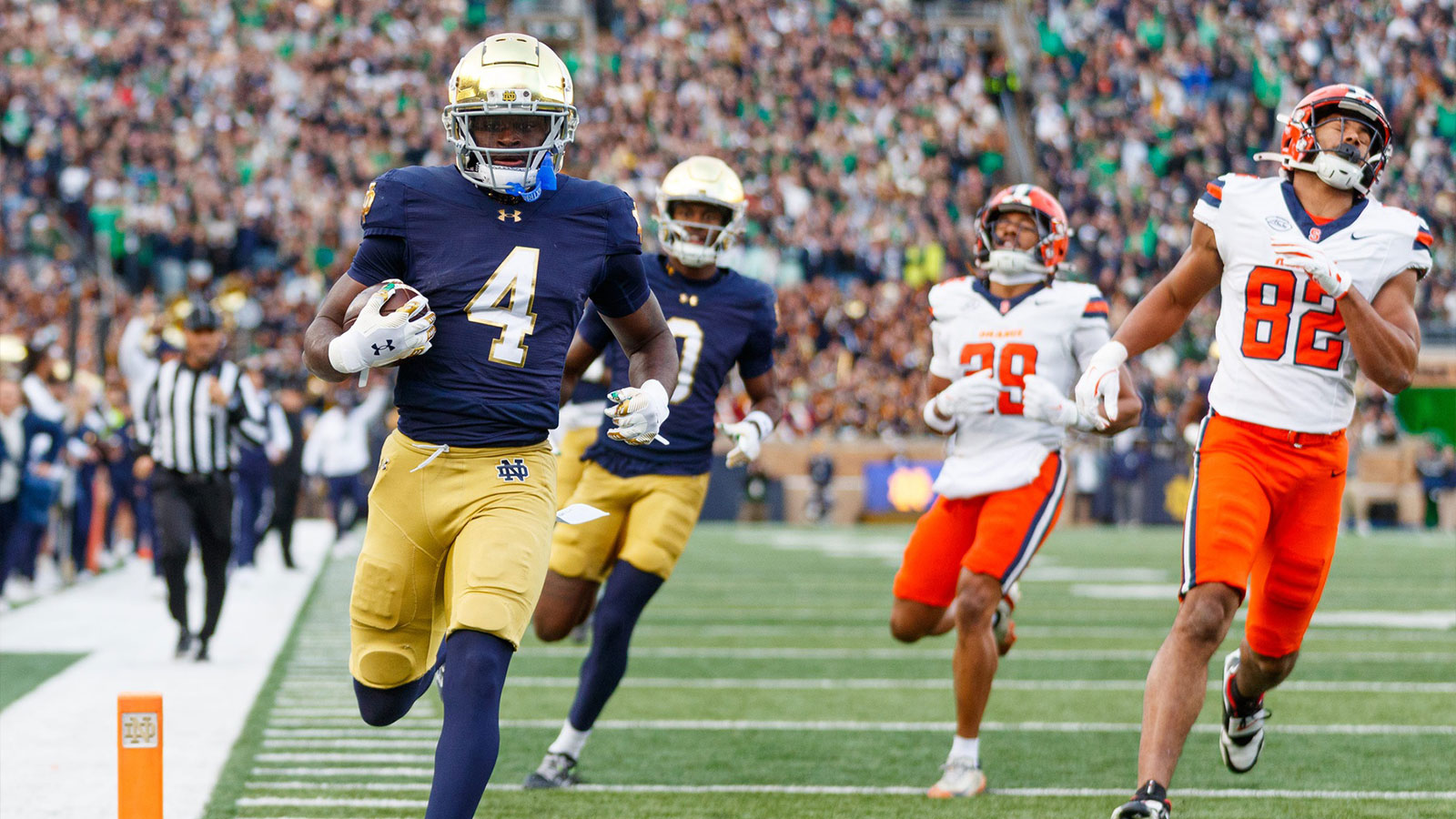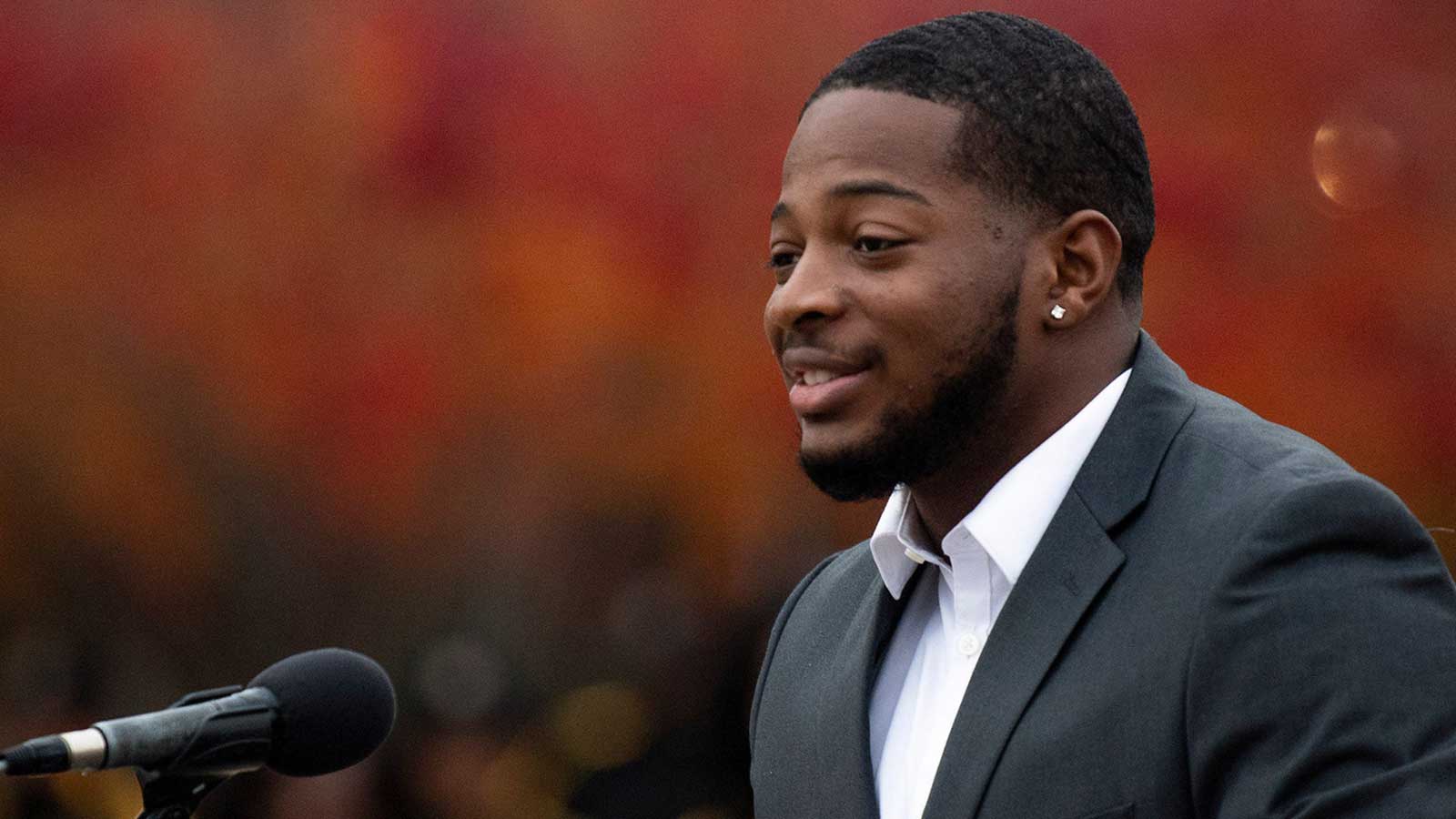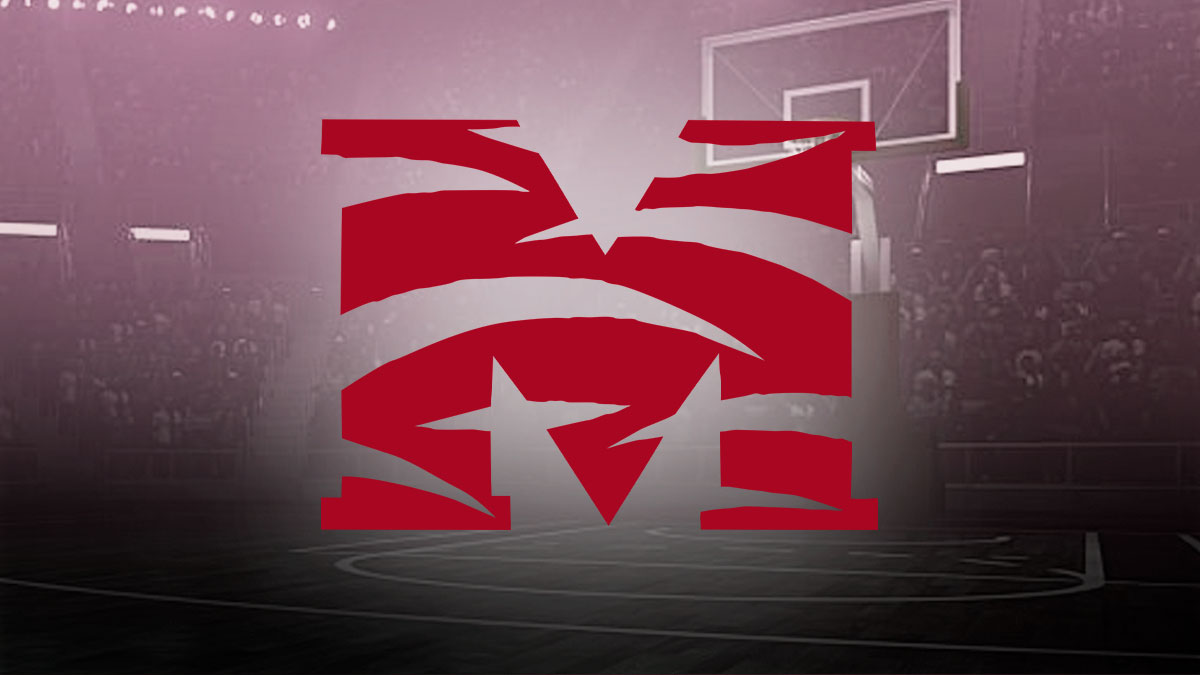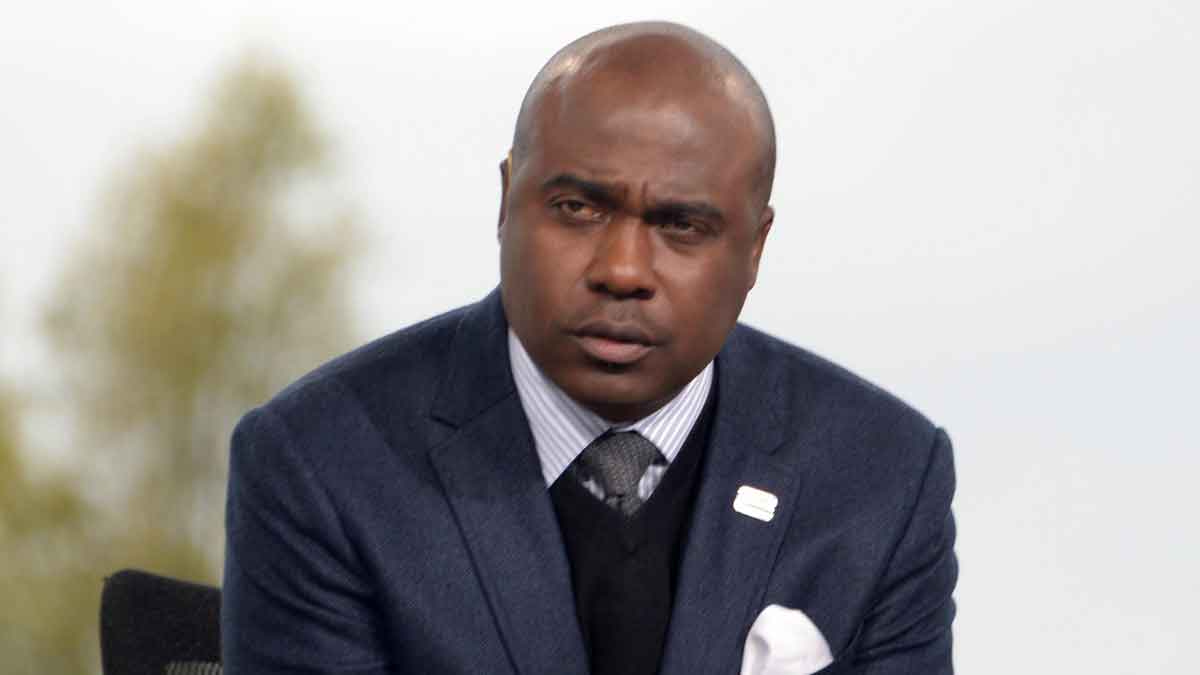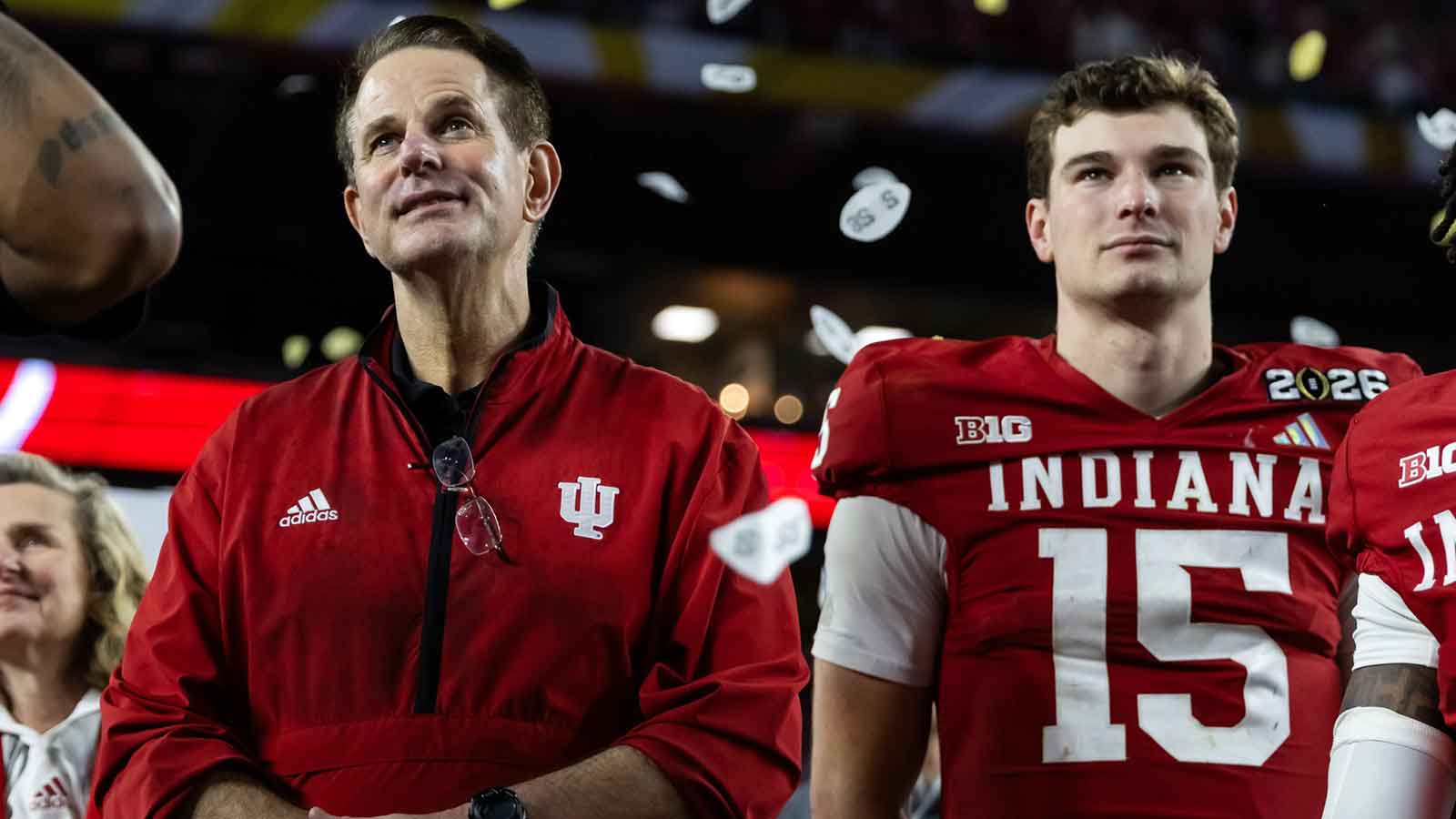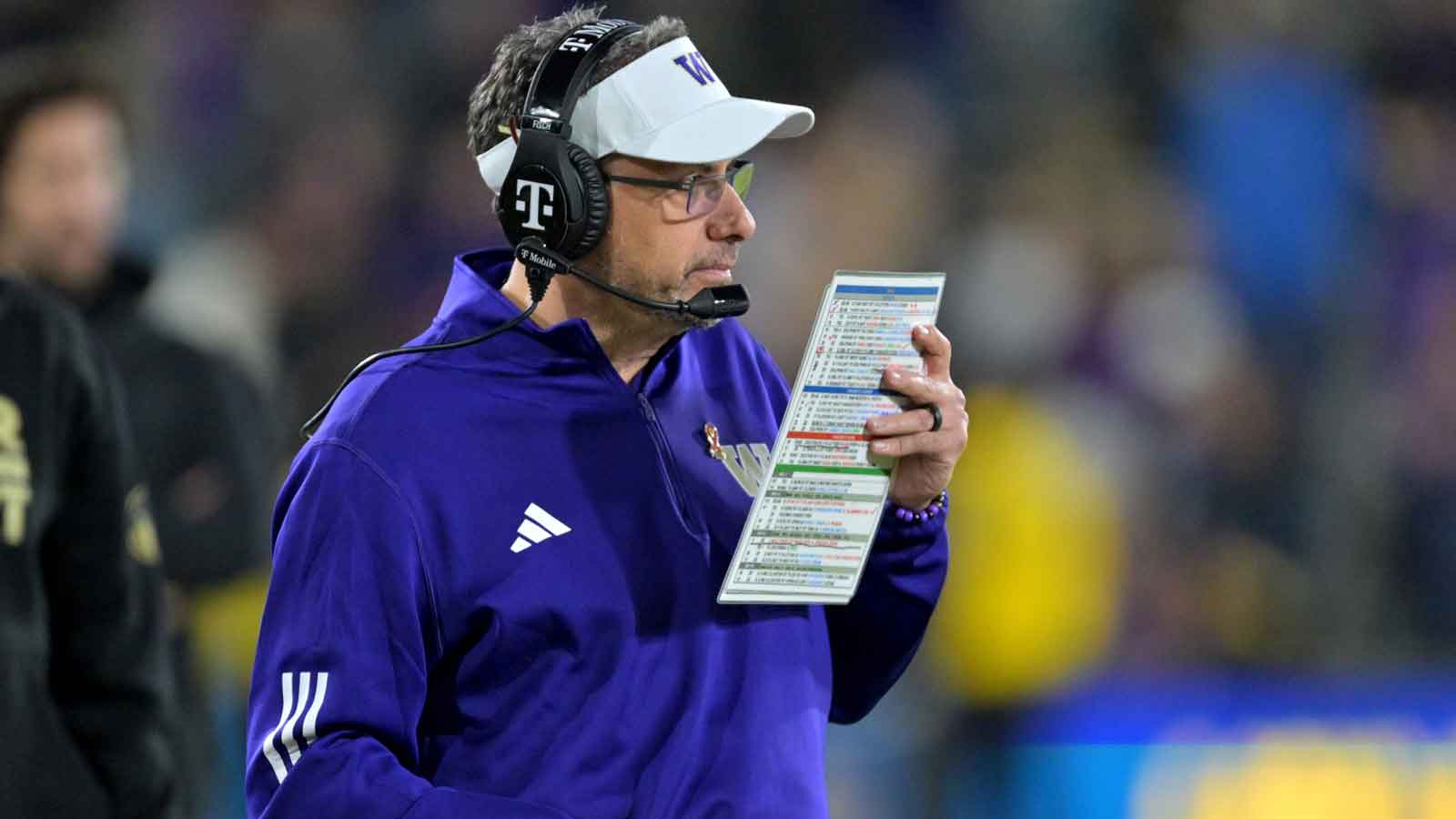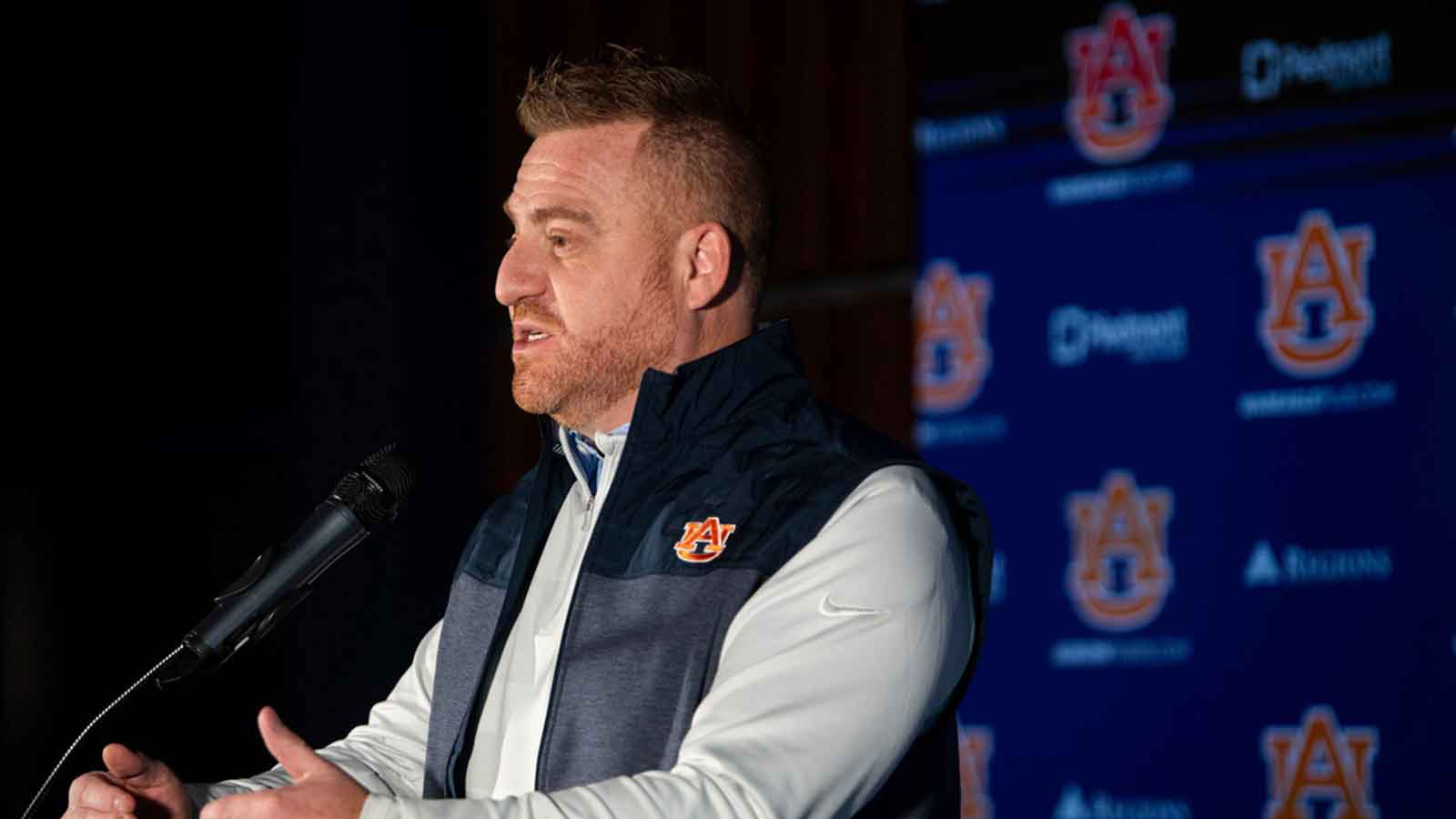College football is celebrated for its capacity for unpredictability, where underdogs frequently prevail against heavily favored opponents. However, during the 2023 season, such upsets were a rarity, at least until the very end when Michigan football and Washington football secured victories against two of college football's most esteemed programs, earning their places in the College Football Playoff (CFP) national championship.
Despite Alabama technically entering Monday's Rose Bowl semifinal as a two-point underdog to Michigan, prevailing sentiment among fans and pundits suggested otherwise. Following their win over then No. 1 Georgia in the SEC Championship Game, there was widespread clamor for the Crimson Tide to embark on an unprecedented seventh trip to the CFP national title game. (Guilty as charged.)
In contrast, Washington faced a more substantial challenge, entering the Sugar Bowl as a four-point underdog to Texas. This marked their second consecutive game as the unfavored side, with the previous being the Pac-12 Championship against Oregon.
But now, these two teams are destined for Houston, TX, to compete for the national championship. Washington stands as the epitome of the biggest unfavored upset of the entire year, while Michigan has orchestrated an entirely different upset. They've not only secured victory over the unofficially favored Alabama on the field but have also silenced the critics, securing their place in the CFP national championship game when many might not have wanted them there.
College Football Playoff national will give Michigan and Washington more clarity as champion
Between them, the Huskies and Wolverines have a combined 13 claimed national championships. The term “claimed” should indeed be emphasized, as all of their respective championships came from a bygone era where determining the best team was even more muddled than it is now.
Back before the days of the Bowl Championship Series and College Football Playoff, spanning from 1968 (the year the AP poll began crowning its champion after bowl games) to 1992, the teams ranked No. 1 and No. 2 entering the bowl season only clashed in a bowl game six times, according to Max Molski at NBC New York.
The college football landscape changed with the introduction of Consensus National Champions for the 1990 and 1991 seasons, leading to the establishment of the Bowl Coalition in 1992. This coalition emerged from an agreement among conferences and bowl games to facilitate a national championship game between the top two teams each season. After three seasons, the coalition underwent a transformation, evolving into the Bowl Alliance, which also lasted for just three seasons.
However, a significant drawback marred the Bowl Coalition and Bowl Alliance's ability to crown a national champion, with the Big Ten and Pac-10 being excluded. Both conferences, bound by contractual obligations to participate in the Rose Bowl, were not part of the equation. The Tournament of Roses Association prohibited either conference champion from participating in a title game, even if one of them held the No. 1 or No. 2 ranking.
Attempting to contemplate all that now seems absurdly ridiculous.
Washington football's last national title was back in 1991, where they started as a preseason No. 4. They finished 8-0 in Pac-10 conference play and 12-0 overall. Their signature wins that season were over a No. 9 Nebraska team in Lincoln and No. 7 Cal in Berkeley. Their most significant win was in the Rose Bowl against, ironically, a No. 4 Michigan team that finished 10-2.
The coaches' poll ranked the Huskies as the No. 1 team in the country after their 34-14 win over the Wolverines. But the AP poll put them at No. 2. The result ended up being a split national title with the Miami Hurricanes, who finished 12-0 and beat No. 11 Nebraska in the Orange Bowl 22-0. The poll era created a total of 11 split national titles, according to ESPN.
Another one of those split national titles was in 1997. Undefeated at 12-0, including 8-0 in Big Ten play, the Michigan Wolverines beat seven top-25 teams that season, including No. 2 Penn State, No. 4 Ohio State, and No. 8 Colorado. They would end their season by defeating No. 8 Washington State in the Rose Bowl. Moving up to No. 1 in the AP poll in mid-November, the victory over the Cougars signified them as the national champions; however, they were ranked 2nd in the coaches' poll, resulting in a split title. They split with a 13-0 Nebraska team who had beaten four top-25 teams, including No. 3 Tennessee in the Orange Bowl.
Washington football or Michigan will be able to say they are the only national champions
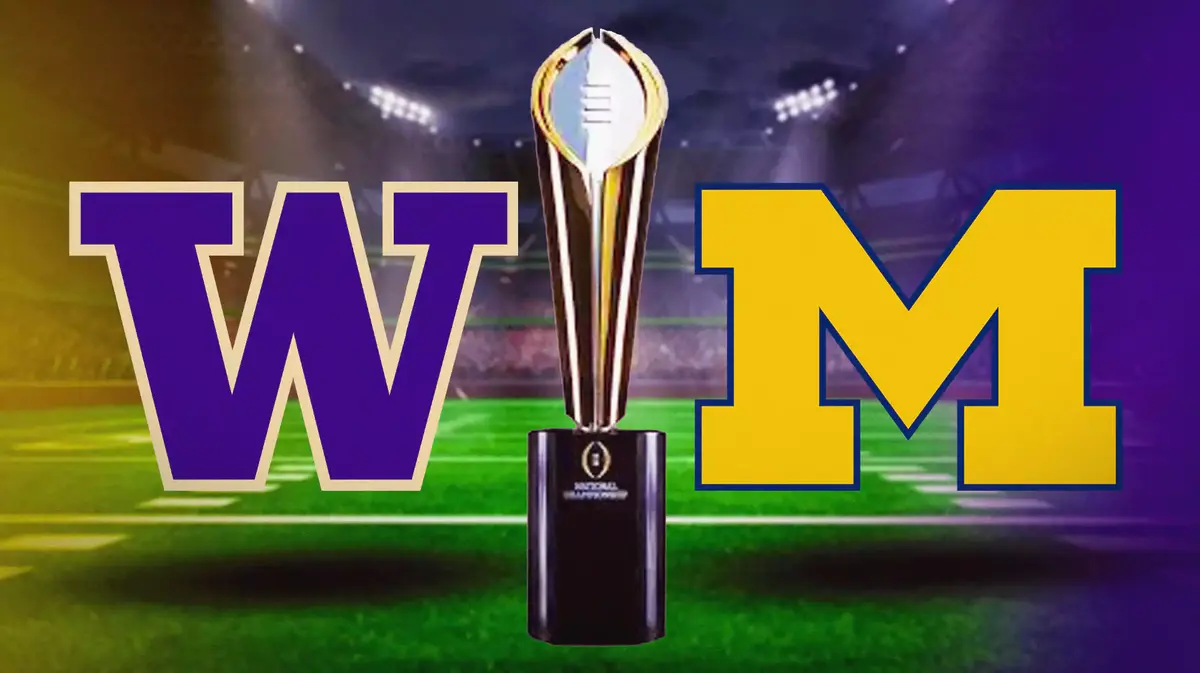
Washington and Michigan were deprived of participating in the BCS era, where they could do more than make claims and outright win a national championship. However, on Monday, Jan. 8, at NRG Stadium in Houston, TX, there won't be any discussion or notion of a split national title this time. Either the Huskies or Wolverines will exclusively be crowned the undisputed national champion in the CFP national championship, concluding yet another era of championship selection while standing on the precipice of another.

